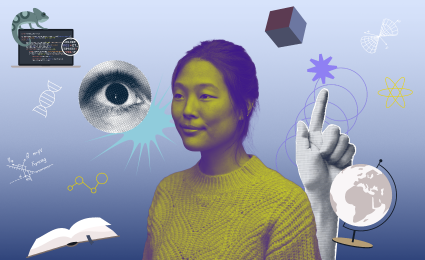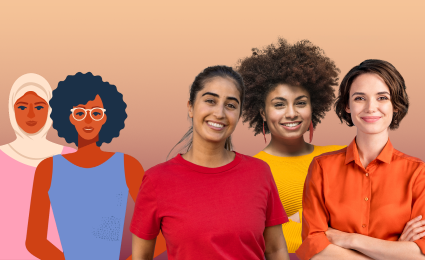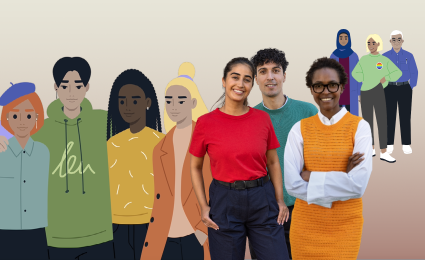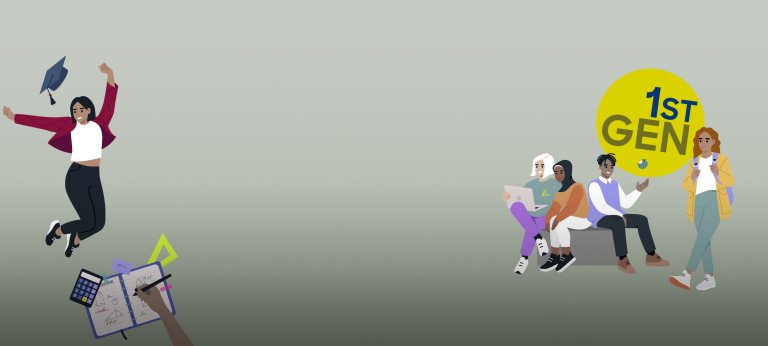
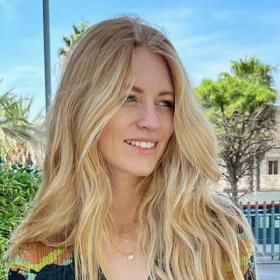
Venja, Senior Consultant
"Preparation is key for all decisions along one's career path, but not all decisions can be planned. Therefore, if you can prepare and make a conscious decision, allocate enough time for research, discussions, and planning."
Tell us about your path to Roland Berger!
Growing up in the countryside in northern Germany, my path led me through an integrated comprehensive school, many part-time jobs, and a dual study program including training at a bank in Hamburg. From the very beginning, it was important to me to gain practical experience, and a dual study program had the advantage of providing a steady income alongside my studies. In addition, six other students and I established a student consulting firm in Hamburg with the goal of giving young people the opportunity to help shape the future through working on projects with companies. This initiative sparked my interest in consulting. Unfortunately, I was rejected from programs at consulting firms because my CV was not an optimal match at that time.
After another year at my cooperative company, I felt the need to live abroad, something many others had done before or during their bachelor's studies, and I wanted to give my career the next push. The result of this wild idea was my master's in Innovation & Entrepreneurship at Esade Business School in Barcelona. This may sound like a solid career path, but it was anything but easy, especially when it came to experience, recommendations, and financing such a master's program. Ultimately, this master's program, even though it was a financial risk, opened many doors for me. One of them was the door to Roland Berger.
What motivated you to be the first in your family to start studying?
I have always wanted to pursue a career in a large company. It was therefore quite natural for me to think that I needed to study something. It should be noted that I had little to no exposure to such "office jobs" and as a result, I didn't really have a clear idea of what I wanted to become or what career options were available. A dual study program seemed like a good entry point into the professional world, as it combines practical experience with theory and provides a regular income.
Fundamentally, I am motivated by the thought that, alongside a carefree life for myself, I also want to enable a carefree life for my parents and my family.
What challenges did you face and how did you overcome them?
There were many individual challenges. In retrospect, it was primarily a mix of a lack of information/experience and a lack of financial resources that led to these challenges. Here's some insight:
Searching for a bachelor's program: What do I want to study, what is it good for, and am I suitable for it? Sure, most people would say, "Just Google it." But what do you search for when you don't even know what you're looking for? What is the timeline for applications, and what prerequisites do you need to meet? Back then, I found available study places through a complicated internet search. But honestly, this could have been handled better, as it's important to start planning and applying as early as possible. It's totally crazy, but unfortunately, that's how it is.
Financing my studies: The financing of a degree is, of course, very individual. During my bachelor's, the apprentice salary plus earnings from a part-time job were sufficient, since the study costs were covered by the company. In my master's program, I chose a mix of loans, generational contracts, BAföG (student financial aid), and scholarships. Generally speaking, I can advise you to engage with the various options like BAföG, loans, scholarships, working student jobs, etc., as early as possible, and also to talk openly with your parents or other students about possible solutions, concerns, and fears.
What would you have liked to know earlier?
I wish I had known earlier that, ideally, you should start planning and preparing for study applications at least a year in advance. In other words, you should have thought about where you actually want to apply even earlier. For some scholarships, you need to apply almost a year in advance, but you don't necessarily need an acceptance from a university at that point. Additionally, there are two types of BAföG: parental-dependent and parental-independent BAföG, which strongly influences whether and how much BAföG support you can receive. At some universities, you can also apply for university scholarships (again) while you are still studying (of course, this varies greatly).
Is there anything you would do differently with your current knowledge?
Aren't we always wiser with hindsight? Looking back, I would have planned in an additional year for the entire decision-making and preparation phase for the master's program and spoken much more with students to learn from their experiences. Additionally, I would have taken every opportunity to gain experience abroad.
But in the end, my path and my experiences have shaped me into the person I am today, and who knows where I would be now if things had turned out differently.
What was particularly important to you as a FirstGen student during your job search/decision for an employer?
First and foremost, it was important to me that not only my CV and highlights like the business school were in the foreground. Rather, I wanted to be seen and appreciated as a person, with my experiences, all the stages I'd been through, and my qualities. Additionally, I paid attention to good career and development opportunities.
Why did you decide to pursue a career at Roland Berger?
I got to know Roland Berger through an EmpowHER event and internship reports from my network, which informed me about the good development and career opportunities here. Additionally, I liked the atmosphere during the event. In the communication after the event and before my application, as well as during the application process, I noticed that interest in me as a person was at the forefront. The focus was not only on the "relevant" stages for consulting, such as business school or consulting internships, but especially on my personal qualities and my entire career path. It was about who I really am as a person and why my previous CV unfolded the way it did, along with all the associated experiences and both professional and volunteer activities.
How was your start at Roland Berger? And how do you like it now after some time in the company?
My start was exciting, challenging, and eventful at the same time, and it naturally took a few weeks for me to really settle in and get into the groove. My female buddy, my buddy, and my mentor, as well as my first project team, were a great help and supported me with advice and assistance. The one-week kickoff training was also a good opportunity for me to connect with other newcomers and learn from each other.
Now, I have been at Roland Berger for over two years, and every day is still eventful, challenging, and varied (which I love about the job because it never gets boring!). There are countless opportunities for me to actively contribute to the company and help shape the future, such as through the Innovation, Engineering, and Product Cluster, the recruiting days and events, and initiatives like Women@RolandBerger or FirstGen@RolandBerger. However, it should not be overlooked that this role requires a certain level of stress resilience and coping ability, and discipline in daily life is important.
What has been the best experience you’ve had at Roland Berger so far?
There are several experiences that come to mind. In addition to exciting project experiences both domestically and internationally with great teams, fun summer and winter events with the Operations/Industrials community, and enjoyable recruiting events, I appreciate seeing how much trust leadership places in junior colleagues. For instance, as a newly promoted Senior Consultant, I was able to take on the role of project lead for a project, contribute my strengths, and simultaneously improve my areas for development. Whenever I had questions or needed content assistance, the experts and partners were always available and took the time to explain unfamiliar topics to me.
Such experiences show me that our company values of entrepreneurship, empathy, and excellence are not just buzzwords, but are truly lived out.
What advice would you like to give to FirstGen students?
Preparation is key for all decisions along one's career path, but not all decisions can be planned. Therefore, if you can prepare and make a conscious decision, allocate enough time for research, discussions, and planning. For short-term decisions, trust your gut feeling. And in the end, it is very true that where there's a will, there's a way!

_tile_teaser_h260.jpg)
